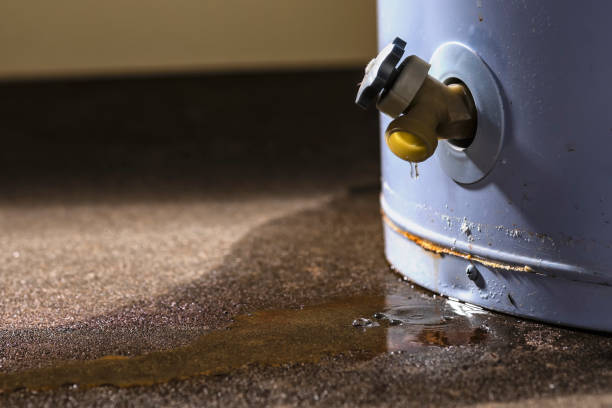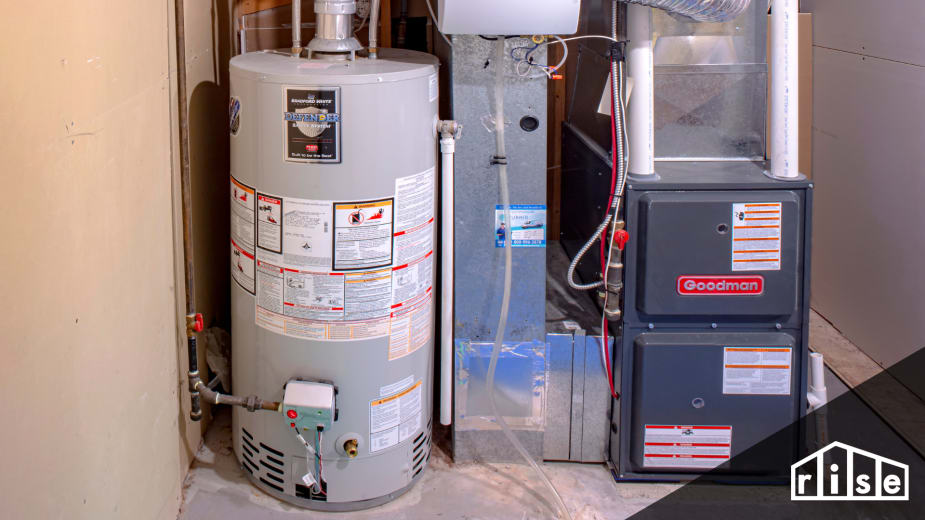Crucial Guidelines for House Owners Handling Broken Heating Units
Crucial Guidelines for House Owners Handling Broken Heating Units
Blog Article
Just about every person may have his or her own thinking on the subject of What Do You Do When Your Water Heater Bursts?.

Whether it is located in the cellar or a different room, broken water heaters can create anxiety. A basic unit holds 80 gallons, so an over night leak will bring about a flooding. This results in significant residential property damage with drenched wall surfaces and floorings. Having no warm water supply is likewise frustrating. If you are handling these concerns, make note of the following:
Shut Off Power Source
Prior to calling the plumber, shut off a gas water heating system by transforming the temperature dial. This will prevent electrocution, particularly if there is a leakage as water is a conductor. Commonly, the home heating component shuts off when the water hits a certain temperature.
Cut Off the Cold Water Supply
Cut off the storage tanks tap water supply from the source. This goes from your major water line into the container. When your storage tank is in good condition, the cold water quits filling when the tank is complete. Yet given that it is dripping, the water will continue to move. Shut the valve discovered on top of the heating system. Revolve this clockwise to shut it off. You must turn off that major water supply line outside your property if you can not discover it or reach it.
Call the Plumber
After doing the initial two safety steps, you have to call your plumber to find right now to deal with a ruptured water heater. However, remember that your device will not simply conk out dramatically overnight. There are typically signs that your aging hot water heater has sediment buildup in the interior. Keep in mind of the following:
Don't wait for major flooding to call the plumber. Already, you will have to spend more to restore your home. Instead, as soon as you spot these signs, have an expert come to check your hot water heater give thanks to. Normally, water heaters have a life expectancy of regarding 8 to 12 years. With regular examination and upkeep, you can lengthen its life.
Clean Up Residential or commercial property
After calling the plumber, document damage by taking notes and also images so you can declare your homeowner's insurance. Eliminate any type of standing water to stop mold and mildew and also mildew development. If you have a completely submersible water pump, use that to drain the water.
Bear in mind, if you observe any concerns with your water heater, call the pros today. You can not take this trouble lightly since a malfunctioning thermostat can increase water temperature to a precariously high level, bring about unintentional burns. A damaged heater pressure relief valve can additionally trigger an explosion. For best results, obtain an annual check so your device gets checked, cleansed, drained, and re-filled, ensuring optimal efficiency.
Whether it is situated in the cellar or a separate room, damaged water heaters can create stress and anxiety. Before calling the plumber, closed off a gas water heating unit by transforming the temperature level dial. After doing the initial 2 safety actions, you need to call your plumber to come right away to repair a ruptured water heating system. If you have a submersible water pump, utilize that to drain the water. Keep in mind, if you see any concerns with your water heating unit, call the pros right away.
8 REASONS YOUR HOT WATER HEATER IS NOT WORKING & HOW TO FIX
Water Heater Problems & Solutions
Loose or Damaged In-Line Valve
Unlike a water leak near the bottom of your water tank, a water leak on top of your system can be easily fixed. A common cause of water tank leaks includes a loose in-line valve. This is a handle that is located at the top of the water tank that is engineered to activate or deactivate the flow of water. To fix this problem, you will need to secure the nut that holds the ball or in-line valve in its location. If the leak becomes more severe once it is tightened, you will be required to travel to your local hardware store to purchase a new in-line valve for your water heater.
Damaged Pressure Relief Valve
Most types of water heaters are equipped with a pressure relief valve that is engineered to discharge pressure from the water tank when it becomes too high. If this valve on top of your water heater begins to leak, we recommend purchasing a new one online or from your local store. The process of removing and replacing pressure relief valves is not complicated.
No Warm Water
If you have an electric water heater in your home, the most typical cause of a lack of warm water is a broken heating element. Your water heater is equipped with two heating elements that are tasked with heating incoming water in the water tank. Once a heating element begins to malfunction, you will have little to no hot water to use for showering, cleaning, and laundry.
Low Supply of Hot Water
Are you continuously running out of warm water? This issue may be a byproduct of a cracked dip tube. This tube is engineered to push cold water to the base of your water tank to be heated. Once a crack or hole begins to form in the dip tube, the incoming supply of cold water may be released near the top or middle of your tank. As a result, the cold water on top of the tank will be sent to the faucets and showers in your house. This hot water heater problem can only be fixed by replacing the dip tube on your system. Since the process of installing a new dip tube is complex, we recommend calling a certified technician for help.
A low supply of warm water may also be a signal of excess sediment buildup in your water tank. As your water heater reaches the middle of its life cycle, minerals in water including magnesium and calcium will begin to collect at the base of the water tank. As the minerals continue to grow, there will be less room in the water tank to store hot water. To resolve this problem, flush your water heater to remove the excess minerals.
Water is Too Warm or Cold
If the water in your shower feels uncomfortable hot or cold, you can adjust the temperature of your water by changing the settings on your thermostat. Setting the temperature to 120 degrees Fahrenheit may help you save money on your utility bills. This is an excellent temperature to use if you’re worried about scalding or skin irritation. Does this temperature feel too cold? You may also adjust the thermostat to 140 degrees Fahrenheit to make your showers more pleasant. If your hot water heater is not working when you change the temperature, this is an indicator of a broken thermostat. Immediately find a certified plumbing or heating contractor in your area to repair or replace your thermostat.
Low Water Pressure
Low water pressure is not always caused by a malfunctioning water heater. If you live in an older home with smaller water pipes, the flow of water will be restricted prior to reaching our kitchen or bathroom skins. The only way to eliminate this hot water heater problem is to connect new ¾-inch water lines to your system. Another type of problem that may negatively impact your water pressure includes calcium deposits in water pipes.
As magnesium and calcium begin to form in your pipes, the diameter of your water lines will become smaller. As a result, the warm water from your water heater will not be able to travel in an efficient manner to your sinks or appliances. Since the process of replacing water pipes includes removing drywall, an average homeowner that does not have a plumbing license will not be able to fix this hot water heater problem.
https://www.wmhendersoninc.com/blog/8-reasons-your-water-heater-is-not-working-how-to-fix/

I hope you enjoyed our part about Water Heater Burst. Thanks a ton for taking a few minutes to read our content. Loved our blog posting? Please share it. Let another person discover it. I praise you for your time. Visit again soon.
Hot water issues? Connect now. Report this page